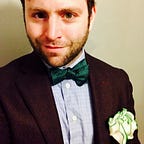The Birth of God, Man’s First Error, and Cruelty as Second Nature:
In 851 words including these
Once upon a time there was a hairy beast hiding up in a tree with her baby. She had neither sharp claws nor cat-like reflexes, and her senses were — compared to the rest of the animal kingdom — adequate at best. For millions of years her ancestors had survived by hiding in such high places. In response to this habitat they had developed strong fingers with opposable thumbs, and were capable of moving quickly from branch to branch, staying out of reach of many predators who were equipped with those traits listed above. But now the savannah was drying out. No longer were there trees in close enough proximity to one another. From now on she would have to climb down and walk from one to the next. Cautiously she began her climb down, her baby clinging to her back. As they moved across the plains she paused occasionally to survey her surrounding for potential threats. They were very vulnerable. She had another ability, which had likely evolved in response to the need to remain balanced while reaching up for branches, but now this ability would serve a new function. In order to better check her surrounding, she stood upright, peering above the grass and turning her neck to see in all directions.
Over time her descendants would get better at being able to do this without stopping. And those opposable thumbs and dexterous fingers would enable them to examine and manipulate their surroundings. Through their picking and fiddling, struggling to gain any edge they could over the harsh world they learned many things, including the benefits of pursuing curiosity at the expense of obaying instinct. They learned to smash open the bones picked clean by the greater predators and found the high-protein marrow, allowing their brains to grow larger without taking away from the energy needs of other bodily functions. Somewhere down the line a genetic mutation in the jaw freed the scull to grow more giving way for the brain to grow larger still.
Eventually the brain grew large enough that it was capable not simply of perceiving objects in the world, but of re-presenting them inside itself. The brain was now the mind. Thus the inner world burst into existence and the human was born. This new evolutionary advantage brought with it the inventions of the concepts of “what” and “how.” Humans were the animals that could identify what a thing was and how it worked. Just as our thumbs and fingers had enabled us to examine and manipulate things in the world, these representations enabled us to manipulate and categorize objects in order to make judgments and general rules about them. We had learned to make things work to our advantage.
However, no matter how much we figured out, the world around us would occasionally behave with random, unpredictable violence. It was not the physical violence that disturbed us (although it was indeed a nuisance), but the violence done to our very definition of ourselves. Such violence presented the human animal with its first unbearable existential crisis. We were the animals that could figure things out and pass it on to our children but, while this was enough to conquer all competitors in the world, it had not yet enabled us to concur the world itself. In response to this frustration, and with the help of our ability to ignore instinct and pursue curiosities, we invented a new word.
Equally as freak, unnecesary, and beautiful, as the movement from the chemical to the biological was the movement from what to “why.” This is man’s first great error.
It was this word, which tore a hole in the natural barrier between our world and the abyss. Existence is indifferent. But when the occurrences of the natural world cross the threshold and enter our world they morph from pure occurrence to actions with intent. This notion is our last ditch effort to seize at least some control.We do not say for example, that “there is rain” but rather that “it” is raining. “Something” is doing the raining and it is something we can perhaps reason with and appeal to. When this pure occurrence of the natural world takes up residence in the human’s inner world, it manifests as cruelty. “The great actor is cruel,” says man. “If I am to become master and possessor of my world[1] then I must also be cruel.” Thus man’s creation taught him evil and instructed him to engrave it onto his heart.
We often accuse nature of being cruel, and use it as an excuse for our own cruelty. But, absent the existence of consciousness, the conditions for the possibility of cruelty are not present. Once we realize this the excuse collapses and we see ourselves for what we are: frightened and resentful children, angry not simply that we can not know everything, but that no matter how far we progress we will only ever have dominion over ourselves. All lashing out against each other and the world is at its heart a lashing out against this impotence.
[1] I take this phrase from Rene Descartes who suggested that this was the ultimate goal of humanity.
